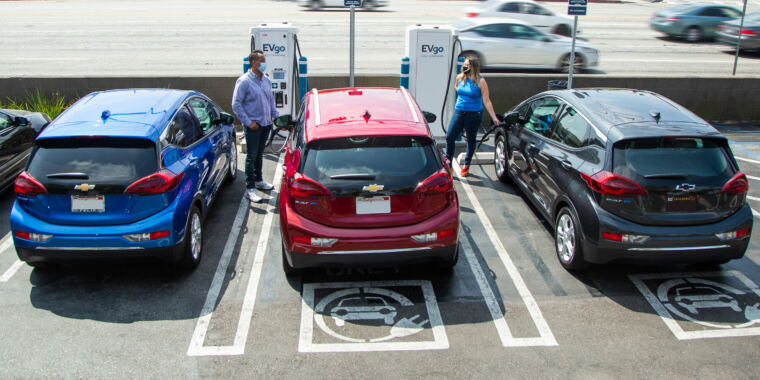

On Friday, General Motors and electric vehicle charging company EVgo announced that they are partnering to strengthen the nation’s DC fast charging infrastructure. The plan is to deploy more than 2,700 DC fast chargers, capable of charging at 100-350kW, with at least four chargers per station. Launch will begin in 2021 and should be completed by 2025.
GM is about to launch a new battery EV architecture called BEV3 and a new battery pack design called Ultium. The company also has plans for multiple new BEVs built on these flexible foundations.
The first of these will be an SUV, the Cadillac Lyriq, which will be officially unveiled on August 7; The next one after that should be an electric GMC Hummer, which may well hold a 200kWh battery and 800V architecture (which would therefore benefit from a 350kW charger).
“We know how important the charging ecosystem is to drivers, one that includes access to convenient and reliable public fast charging. Our relationship with EVgo will strengthen the public fast charging network available to EV customers ahead of increased demand from the market and will reinforce our commitment to a fully electric, no future emissions, “GM President and CEO Mary Barra said in a statement.
According to Green Car Reports, EVgo is looking at the top 40 chargers for new metro areas. For now, the two companies are simply saying that the charging stations “will be located in highly visible areas.” EVgo currently operates 800 fast charging stations, almost double that of Electrify America (which currently has 452 active sites with another 104 currently in process).
Neither GM nor EVgo are talking about how much it will cost to build these new chargers; In the case of Electrify America, Volkswagen was required to spend $ 2 billion on charging infrastructure as a result of the diesel emissions fraud scandal.